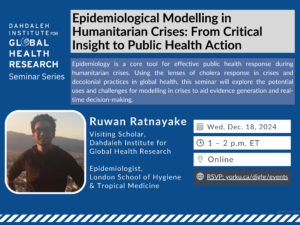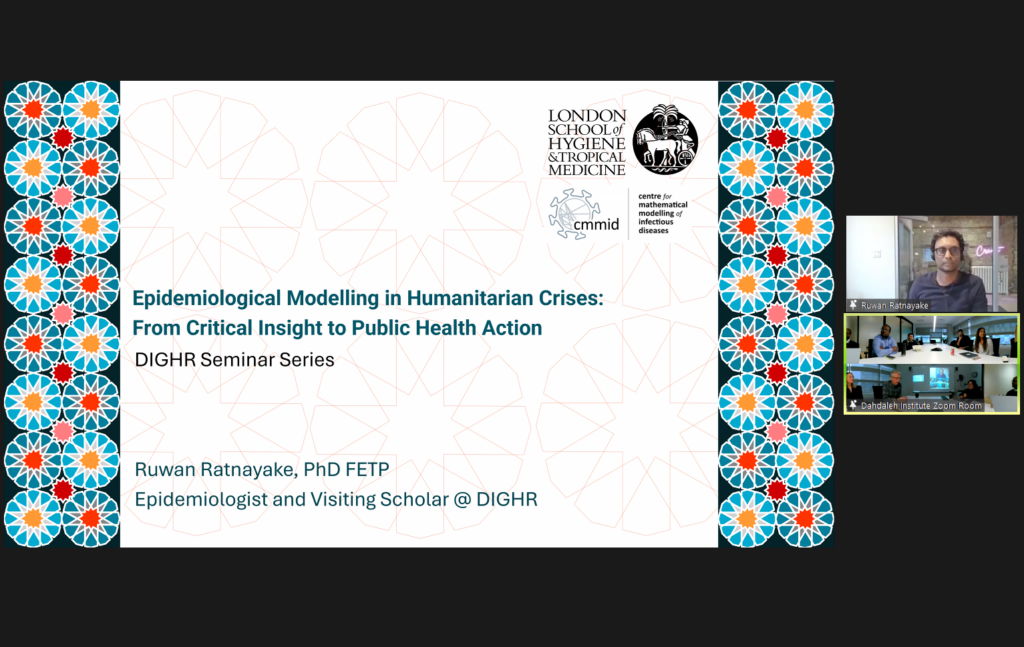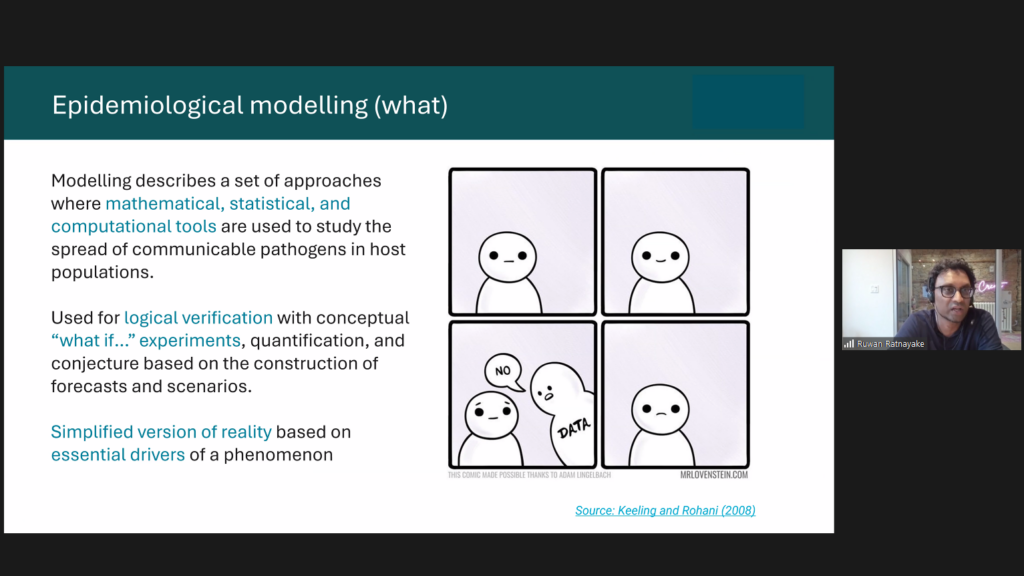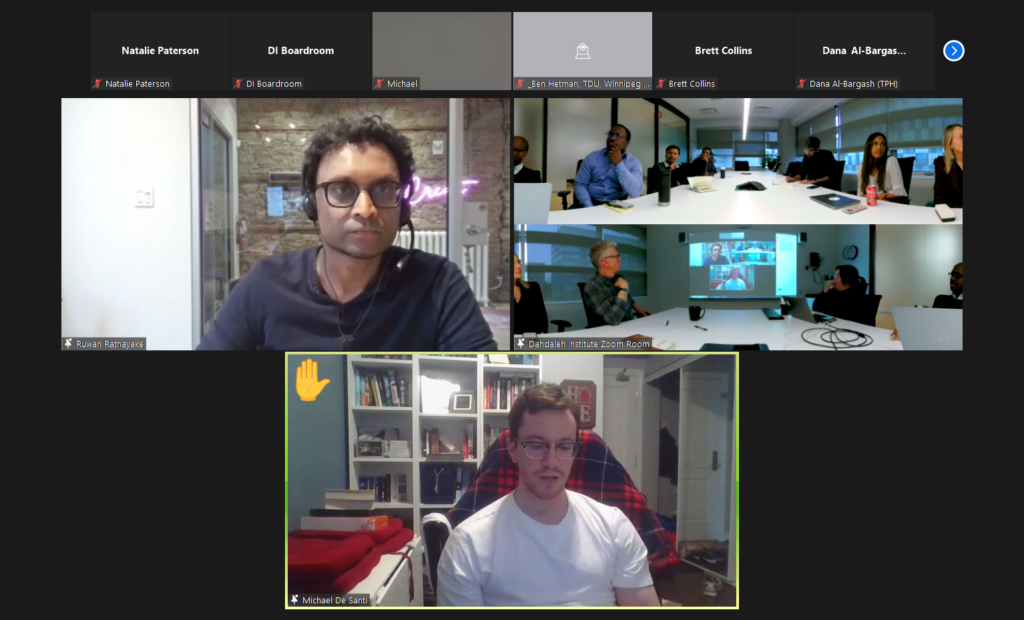Post
Published on February 6, 2025

On December 18, Dahdaleh visiting scholar Dr. Ruwan Ratnayake emphasized the important role of epidemiology in public health responses during humanitarian crises. The seminar highlighted the increasing integration of modern analytical methods such as mathematical modeling, into the epidemiological toolbox.
Dr. Ratnayake detailed how modeling is used to describe the epidemiology of communicable diseases, convert transmission dynamics and simulate effective public health interventions in crisis affected populations. The seminar explored these concepts through the lens of cholera response, using case studies to illustrate the utility and challenges of modeling in real time decision making.
The cholera response in the Democratic Republic of the Congo provided a clear example. Dr. Ratnayake explained how Case Area Targeted Interventions (CATI) were employed to rapidly address cholera outbreaks within localized high risk zones. Spatial modeling demonstrated that CATI, combined with single dose cholera vaccines and water treatment, effectively contained outbreaks within 60 days while utilizing fewer resources compared to mass interventions. The study underscored the value of modeling in optimizing interventions in resource constrained settings.



Dr. Ratnayake also introduced a conceptual framework linking direct and indirect health effects of crises such as injuries, mental health conditions and preventable diseases to outcomes and broader public health impacts. He emphasized how modeling can enhance early warning systems, improve risk assessments and facilitate better resource allocation.
The seminar concluded with a discussion on the challenges of modeling in crises including data scarcity, the need for decolonial practices in global health and building sustainable modeling capacities in affected regions. Dr. Ratnayake highlighted the potential of modeling to help with evidence generation and drive real time public health actions, explaining its importance as a transformative tool in humanitarian contexts.
Watch the seminar presentation below: https://www.youtube.com/watch?v=Z8S_7W_9Xjk
Connect with Dr. Ruwan Ratnayake.
Themes | Planetary Health |
Status | Active |
Related Work |
N/A
|
Updates |
N/A
|
People |
You may also be interested in...
Publication – Climate Change-Accelerated Ocean Biodiversity Loss & Associated Planetary Health Impacts
Dahdaleh Institute researchers Byomkesh Talukder, Nilanjana Ganguli, and James Orbinski have published this review article with other co-authors in The Journal of Climate Change and Health. Abstract: A planetary health perspective views human health as ...Read more about this Post
Internship Program: 2024-2025 Year In Review
Over the course of the 2024-2025 academic year, the Dahdaleh Institute collaborated with a group of outstanding students as part of the Internship Program. In recent years, our internship program has expanded to include research ...Read more about this Post
Partnership for Youth and Planetary Wellbeing
Ecological degradation and climate change are among the greatest challenges on earth. Fresh, collective, interdisciplinary responses are urgently required to better understand and address the range of effects and responses to human and societal wellbeing ...Read more about this Project
